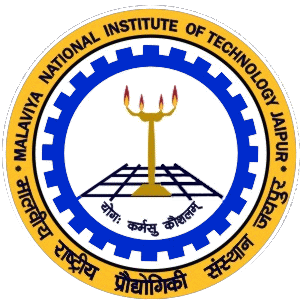 NUCLEAR ENERGY MADE AS PER ‘MAKE-IN-INDIA’ CONCEPT AS AGAINST OTHER TECHNOLOGIES
NUCLEAR ENERGY MADE AS PER ‘MAKE-IN-INDIA’ CONCEPT AS AGAINST OTHER TECHNOLOGIES
Padmashree Dr. Srikumar Banerjee Visits MNIT Jaipur
|
· Trends in research of advanced materials includes – Miniaturization, Stretching the limits of materials, materials imitating biological characteristics of nature and processing · Interesting examples on ‘Shape memory alloys’ used in light combat aircrafts and ‘Carbon Nano Tubes’ · Science and Inclusive growth highlighting more of social growth benefiting the masses · Nuclear technology is the only technology which is based on the concept of ‘Make-in-India’ unlike other technologies which are reliant on outsourced technology |
December 02, 2015, Jaipur: India’s leading Technical and research institution, The Malaviya National Institute of Technology, Jaipur (MNIT), today invited Padmashree Dr. Srikumar Banerjee, Former Chairman, Atomic Energy Commission & Secretary, Department of Atomic Energy and presently DAE HomiBhabha Chair Professor, Bhabha Atomic Research Center (BARC). He addressed the conference with his valuable insights on ‘Advanced Materials and Processing’. He highlighted specific aspects of trends in research and advanced materials and creating the innovative climate in the country along with the 10 focus areas for research listed by the Government of India which were declared now as a national policy for the benefit of the society.In addition to Padmashree Dr. Banerjee, the conference was graced bythe presence of Prof. I. K. Bhat, Director – MNIT Jaipur.
Prof. I K Bhat, Director, MNIT said, “This moment is extremely significant as we have one of the most eminent personalities from the field of atomic energy between us today. In today’s eco-system where we are constantly speaking about more innovation and inclusive growth, Padmashree Dr. Srikumar Banerjee has enlightened our students with knowledge that is practical and which will also trigger their thought processes in looking at the broader picture on advanced materials and processing. According to the recent national policy as per September 2015, the Government of India has declared 10 focus areas for research which are: Healthcare, Information and Communication Technology, Energy, Sustainable Habitat, Nano Technology, Hardware, Water Resource and River System, Advanced Materials, Manufacturing (processing), Security &Defense, Environmental Science and Climate Change. Most of the technology or the materials that are required by the society today are imported from other countries, a few such examples would be the finger joints, dental implants, heart/ vascular stents, dental bridges, dental restorative material etc.and there is a huge scope for metallurgists.”
Material Engineer is to support society by developing and researching new materials within country and benefit the society in general. Thus it is important that India has to create an innovative climate, push for desired outcomes from advanced materials through research, apply reduce, re-use and recycle method for sustainability and work with research agencies and stakeholders to identify opportunities for joint and alleged activities.
Padmashree Dr. Srikumar Banerjee, Former Chairman, Atomic Energy Commission & Secretary, Department of Atomic Energysaid, “I am delighted to be invited at the MNIT to provide insights on Advanced Material and Processing. I am extremely impressed with the metallurgy laboratory that I visited at MNIT and the faculty, the students including the Director of the institute who has taken special interest in the minutest information in knowing the equipments and the processes in detail. Every laboratory, be it the manufacturing lab, the foundry, the mineral processing, each of these areas have equipments and facilities which have been created in such a manner that you can process the material here and then do the characterization. This kind of infrastructure and philosophy should be emulated by many other institutions so that we can say that we have confidence in making our own technology. This effort of Malaviya National Institute of Technology is creditable and sets an example for others too. The conference has drawn many young minds to tune them through this programme, but I would definitely make it a point that one must not miss the chance to visit the laboratories of MNIT. ”
Dr. Srikumar Banerjee covered trends in research of advanced materials includes – Miniaturization, Stretching the limits of materials, materials imitating biological characteristics of nature and processing. He also provided interesting examples on ‘Shape memory alloys’used in light combat aircrafts and ‘Carbon Nano Tubes’. He mentioned in his session on ‘Science and Inclusive Growth’ that one must focus on the ‘Make-in-India’ concept by providing more and more social growth which will benefit the masses. Nuclear technology is the only technology which is based on the concept of ‘Make-in-India’ unlike other technologies which are reliant on outsourced technology.
MNIT has 8 under-graduate programmes, 20 Post-graduate programmes and over 500 students in the campus working on PhD dissertations.
